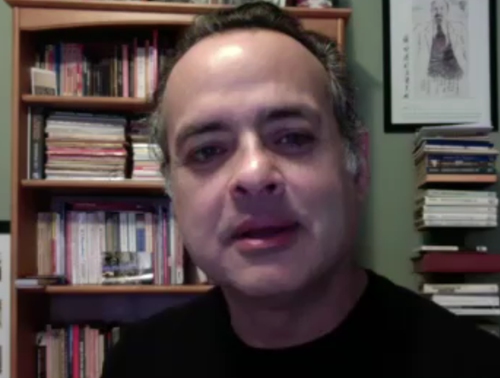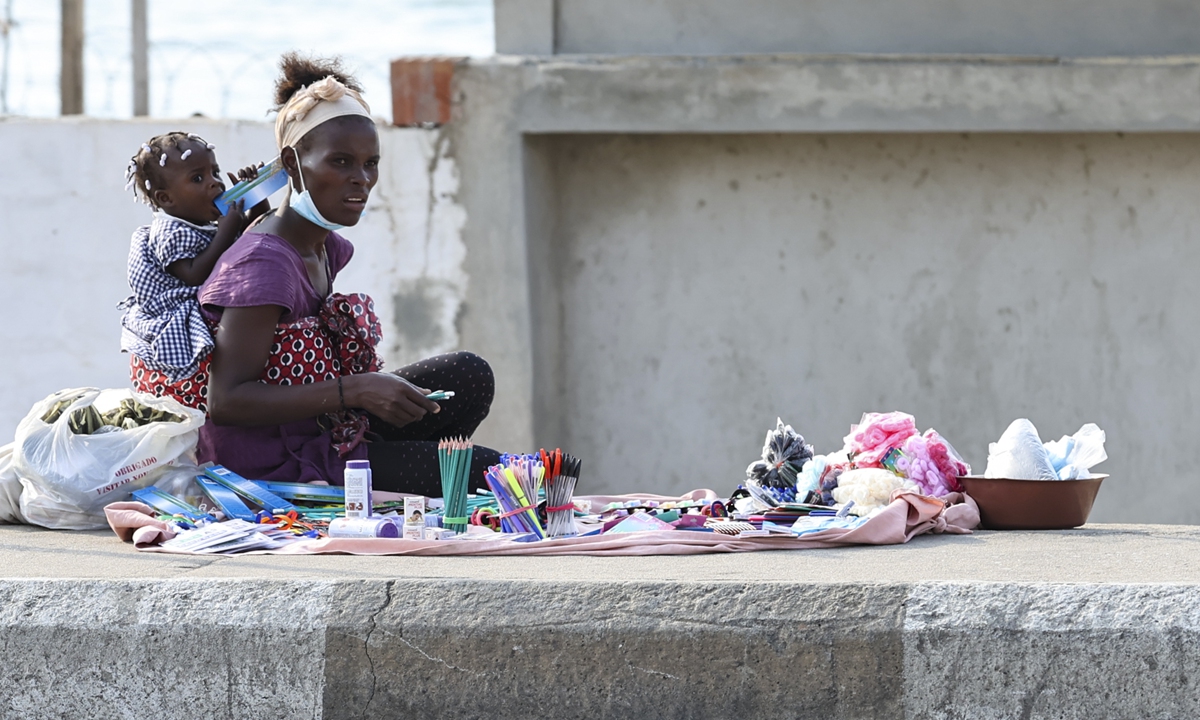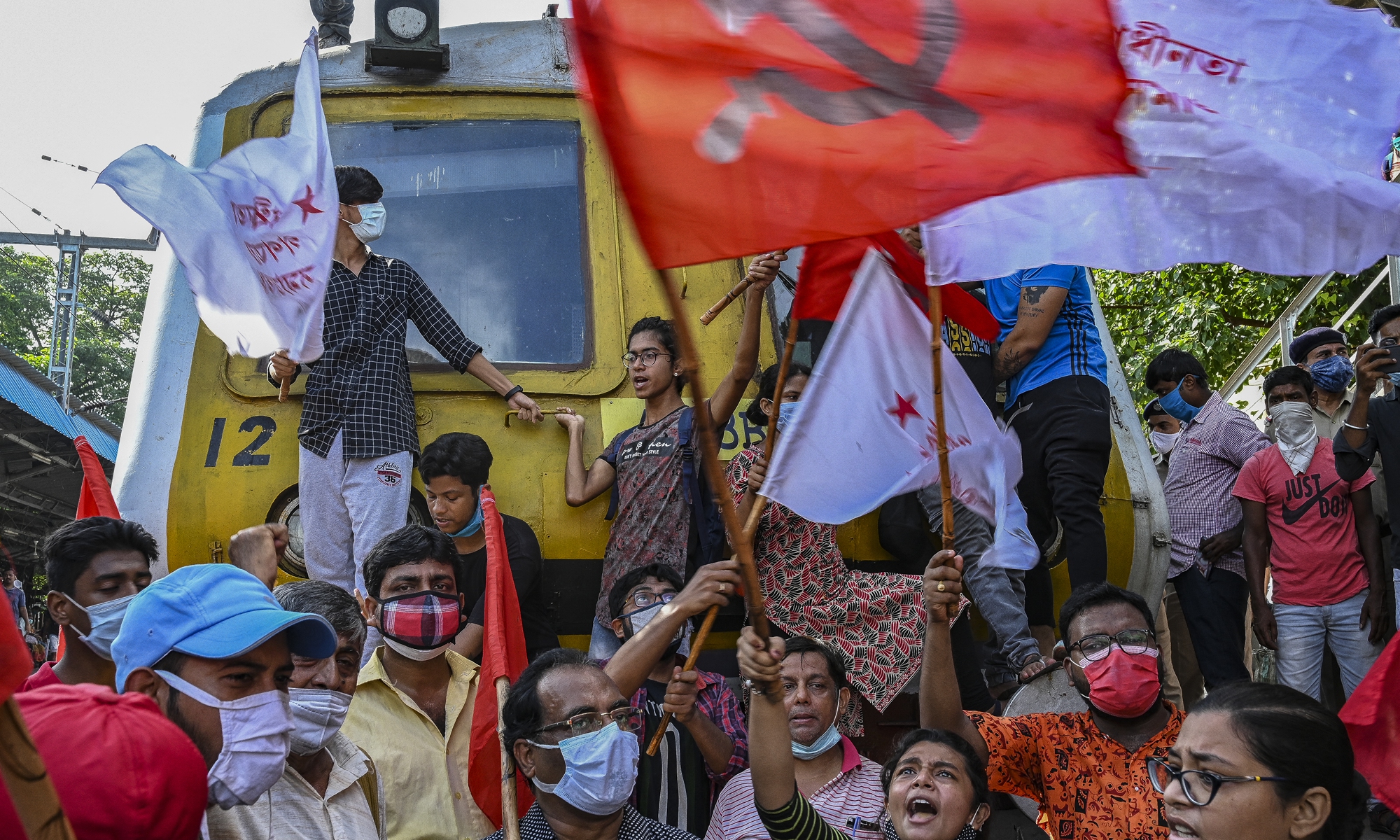Washington Bullets is written in the best traditions of Marxist journalism and history-writing. It is a book of fluent and readable stories, full of detail about US imperialism, but never letting the minutiae obscure the larger political point. It is a book that could easily have been a song of despair – a lament of lost causes; it is, after all, a roll call of butchers and assassins; of plots against people’s movements and governments; of the assassinations of socialists, Marxists, communists all over the Third World by the country where liberty is a statue.
Despite all this, Washington Bullets is a book about possibilities, about hope, about genuine heroes. One such is Thomas Sankara of Burkina Faso – also assassinated – who said: ‘You cannot carry out fundamental change without a certain amount of madness. In this case, it comes from nonconformity, the courage to turn your back on the old formulas, the courage to invent the future. It took the madmen of yesterday for us to be able to act with extreme clarity today. I want to be one of those madmen. We must dare to invent the future.’
Washington Bullets is a book infused with this madness, the madness that dares to invent the future.
Contents
Preface by Evo Morales Ayma 9
Files 13
‘Bring Down More US Aircraft’ 17
Part 1
Divine Right 23
Preponderant Power 24
Trusteeship 26
‘International Law Has to
Treat Natives as Uncivilized’ 28
‘Savage Tribes Do Not Conform
to the Codes of Civilized Warfare’ 31
Natives and the Universal 34
UN Charter 36
‘I am for America’ 39
Solidarity with the United States
against Communism 42
‘No Communist in Gov. or Else’ 45
‘Nothing Can Be Allowed’ 48
Third World Project 51
Expose the US ‘Unnecessarily’ 53
Part 2
Manual for Regime Change 65
Production of Amnesia 90
‘Be a Patriot, Kill a Priest’ 93
8
Contents
The Answer to Communism
Lay in the Hope of Muslim Revival 96
‘I Strongly Urge You to Make This a Turning Point’ 100
‘The Sheet is Too Short’ 106
The Debt of Blood 109
All the Cameras Have Left For the Next War 111
Part 3
‘Our Strategy Must Now Refocus’ 115
‘Rising Powers Create Instability
in the International State System’ 119
‘Pave the Whole Country’ 122
Banks Not Tanks 125
First Amongst Equals 128
Only One Member of the Permanent
Security Council – the United States 130
Republic of NGOs 132
Maximum Pressure 135
Accelerate the Chaos 140
Sanctions are a Crime 142
Law as a Weapon of War 146
Dynamite in the Streets 148
We Believe in People and Life 152
Sources 155
Acknowledgements 161
9
Preface
This is a book about bullets, says the author. Bullets that assassinated democratic processes, that assassinated revolutions, and that assassinated hope.
The courageous Indian historian and journalist Vijay Prashad has put his all into explaining and providing a digestible and comprehensive way of understanding the sinister interest with which imperialism intervenes in countries that attempt to build their own destiny.
In the pages of this book, Prashad documents the participation of the United States in the assassination of social leaders in Africa, Asia, and Latin America, and in the massacres of the people, who have refused to subsidize the delirious business dealings of
multinational corporations with their poverty.
Prashad says that these Washington Bullets have a price: ‘The biggest price is paid by the people. For in these assassinations, these murders, this violence of intimidation, it is the people who lose their leaders in their localities. A peasant leader, a trade-union
leader, a leader of the poor.’ Prashad provides a thorough account of how the CIA
participated in the 1954 coup d’état against the democratically elected president of Guatemala, Jacobo Árbenz Guzmán. Árbenz had the intolerable audacity of opposing the interests of the United Fruit Company.
In Chile, Prashad shows us how the US government spent $8 million to finance strikes and protests against Allende.
What happened in Brazil when the parliamentary coup removed president Dilma Rousseff from office in August 2016 is an example of the perverse practice of ‘lawfare’, or the ‘use of law as a weapon of war’. The same method was used against former president Luiz Inácio Lula da Silva, who suffered in prison for 580 days as a result of a trial in which the prosecutors did not provide concrete evidence – just ‘firm beliefs’.
Times have changed, and business is no longer carried out in the same way, but the underlying methods and responses of imperialism have remained largely unaltered.
Bolivians know this perverse politics well. Long before our fourteen years at the head of the Plurinational State of Bolivia, we have had to confront the operations, threats, and retaliation of the United States.
In 2008, I had to expel Philip Goldberg, the ambassador of the United States, who was conspiring with separatist leaders, giving them instructions and resources to divide Bolivia. In that moment, the US Department of State said that my claims were unfounded.
I don’t know what they would say now, when the participation of the US embassy in the coup that overthrew us at the end of 2019 is so clear. What will future researchers say who take up the work of reading the CIA documents that are classified today?
The Monroe Doctrine and the National Security Doctrine attempt to convert Latin America into the United States’s backyard and criminalize any type of organization that opposes its interest and that attempts to build an alternative political, economic, and social model.
Over the decades, the US has invented a series of pretexts andhas built a narrative to attempt to justify its criminal political and military interventions. First, there was the justification of the fight against communism, followed by the fight against drug trafficking, and, now, the fight against terrorism.
This book brings to mind the infinite instances in which Washington Bullets have shattered hope. Colonialism has always used the idea of progress in accordance with its own parameters and its own reality. This same colonialism – which puts our planet in a state of crisis today, devours natural resources, and concentrates wealth that is generated from devastation – says that our laws of vivir bien [‘living well’] are utopian. But if our dreams of equilibrium with Pachamama [‘Mother Earth’], of freedom,and of social justice are not yet a reality, or if they have been cut short, it is primarily because imperialism has set out to interfere in our political, cultural, and economic revolutions, which promote sovereignty, dignity, peace, and fraternity among all people.
If the salvation of humanity is far away, it is because Washington insists on using its bullets against the world’s people.
We write and read these lines and this text in a moment that is
extremely tense for our planet. A virus is quarantining the global
economy, and capitalism – with its voracious habits and its need
to concentrate wealth – is showing its limits.
It is likely that the world that will emerge from the convulsions
of 2020 will not be the one that the one that we used to know.
Every day, we are reminded of the duty to continue our struggle
against imperialism, against capitalism, and against colonialism.
We must work together towards a world in which greater respect
for the people and for Mother Earth is possible. In order to do this,
it is essential for states to intervene so that the needs of the masses
and the oppressed are put first. We have the conviction that we are
the masses. And that the masses, over time, will win.
Evo Morales Ayma Buenos Aires Former President of Bolivia April 2020
I make no secret of my opinion that at the present time the
barbarism of Western Europe has reached an incredibly high
level, being only surpassed – far surpassed, it is true – by the
barbarism of the United States.
– Aimé Césaire, Discourse on Colonialism, 1955
Books and documents that detail the tragedies afflicted upon the
people of the world surround me. There is a section of my library
that is on the United States government’s Central Intelligence
Agency (CIA) and its coups – from Iran in 1953 onward, every
few years, every few countries. The International Monetary Fund
(IMF) reports make up an entire bookshelf; these tell me about
the roadblocks placed before countries that try to find a way out
of their poverty and inequality. I have files and files of government
documents that had investigated old wars and new wars, bloodshed
that destabilized countries in the service of the powerful and the
rich. There are memoirs of diabolical leaders and advisors – the
complete works of Henry Kissinger – and there are the writings
and speeches of the people’s leaders. These words create a world.
They explain why there is so much suffering around us and why
that suffering leads not to struggle, but to resignation and hatred.
I reach above me and pull down a file on Guatemala. It is on
the CIA coup of 1954. Why did the US destroy that small country?
Because the landless movement and the Left fought to elect a democratic politician – Jacobo Árbenz – who decided to push through a moderate land reform agenda. Such a project threatened to undercut the land holding of the United Fruit Company, a US
conglomerate that strangled Guatemala. The CIA got to work. It
contacted retired Colonel Carlos Castillo Armas, it paid off brigade
commanders, created sabotage events, and then seized Árbenz in
the presidential palace and sent him to exile. Castillo Armas then
put Guatemala through a reign of terror. ‘If it is necessary to turn
the country into a cemetery in order to pacify it,’ he said later, ‘I
will not hesitate to do so.’ The CIA gave him lists of Communists,
people who were eager to lift their country out of poverty. They
were arrested, many executed. The CIA offered Castillo Armas
its benediction to kill; A Study of Assassination, the CIA’s killing
manual, was handed over to his butchers. The light of hope went
out in this small and vibrant country.
What other day-lit secrets of the past are sitting in my files and
books? What do these stories tell us?
That when the people and their representatives tried to forge
a just road forward, they were thwarted by their dominant classes,
egged on by the Western forces. That what was left was a landscape
of desolation. Humiliation of the older colonial past was now
refracted into the modern era. At no time were the people of the
Third World allowed to live in the same time as their contemporaries
in the West – they were forced into an earlier time, a time with less
opportunity and with less social dignity. Tall leaders of the Third
World felt the cold steel of execution – Patrice Lumumba in the
Congo (1961), Mehdi Ben Barka of Morocco (1965), Che Guevara
in Bolivia (1967), Thomas Sankara in Burkina Faso (1987), and so
many others, before, after, and in between. Entire countries – from
Vietnam to Venezuela – faced obliteration through asymmetrical
and hybrid wars.
This book is based on a vast amount of reading of US government documents, and documents from its allied governments and multilateral organizations, as well as the rich
secondary literature written by scholars around the world. It is a
book about the shadows; but it relies upon the literature of the
light.
‘Bring Down More US Aircraft’ Estados Unidos: el país donde
La libertad es una estatua.
United States: the country where Liberty is a statue.
– Nicanor Parra, Artefactos, 1972
What is the price of an assassin’s bullet? Some dollars here and there.
The cost of the bullet. The cost of a taxi ride, a hotel, an airplane,
the money paid to hire the assassin, his silence purchased through
a payment into a Swiss bank, the cost to him psychologically for
having taken the life of one, two, three, or four. But the biggest
price is not paid by the intelligence services. The biggest price is
paid by the people. For in these assassinations, these murders, this
violence of intimidation, it is the people who lose their leaders in
their localities. A peasant leader, a trade-union leader, a leader of
the poor. The assassinations become massacres, as people who are
in motion are cut down. Their confidence begins to falter. Those
who came from them, organized them, spoke from them, either
now dead or, if not dead, too scared to stand up, too isolated, too
rattled, their sense of strength, their sense of dignity, compromised
by this bullet or that. In Indonesia, the price of the bullet was in
the millions; in Guatemala, the tens of thousands. The death of
Lumumba damaged the social dynamic of the Congo, muzzling
its history. What did it cost to kill Chokri Belaïd (Tunisian, 1964–
2013) and Ruth First (South African, 1925–1982), what did it take to kill Amílcar Cabral (Bissau-Guinean and Cape Verdean,1924–1973) and Berta Cáceres (Honduran, 1971–2016)? What did it mean to suffocate history so as to preserve the order of the rich?
Each bullet fired struck down a Revolution and gave birth to our present barbarity. This is a book about bullets.
Many of these bullets are fired by people who have their own
parochial interests, their petty rivalries and their small-minded
gains. But more often than not, these have been Washington’s
bullets. These are bullets that have been shined by the bureaucrats
of the world order who wanted to contain the tidal wave that swept
from the October Revolution of 1917 and the many waves that
whipped around the world to form the anti-colonial movement.
The first wave crested in the Union of Soviet Socialist Republics
(USSR) and in Eastern Europe, and it was this wave that provoked
the Cold War and the East–West conflict; the other wave went
from Vietnam and China to Cuba, from Indonesia to Chile, and
this wave engendered the far more deadly North–South or West–
South conflict. It was clear to the United States, as the leader of
the West, that no muscular conflict would be possible along the
East–West axis, that once the USSR (1949) and China (1964)
tested their nuclear weapons no direct war would be possible.
The battlefield moved from along the Urals and the Caucasus into
Central and South America, into Africa, and into Asia – into, in
other words, the South. Here, in the South where raw materials are
in abundance, decolonization had become the main framework
by the 1940s. Washington’s bullets that pointed towards the USSR
remained unused, but its bullets were fired into the heart of the
South. It was in the battlefields of the South that Washington
pushed against Soviet influence and against the national liberation
projects, against hope and for profit. Liberty was not to be the
watchword of the new nations that broke away from formal
colonialism; liberty is the name of a statue in New York harbour.
Imperialism is powerful: it attempts to subordinate people to
maximize the theft of resources, labour, and wealth. Anyone who denies the absolute obscenity of imperialism needs to find another answer to the fact that the richest 22 men in the world have more wealth than all the women in Africa, or that the richest one per
cent have more than twice as much wealth as 6.9 billion people.
You would have to have an answer for the reason why we continue
to suffer from hunger, illiteracy, sickness, and indignities of
various kinds. You could not simply say that there are no resources
to solve these problems, given that tax havens hold at least $32
trillion – more than the total value of gold that has been brought
to the surface. It is easy to bomb a country; harder yet to solve
the pressing problems of its peoples. Imperialism’s only solution
to these problems is to intimidate people and to create dissension
amongst people.
But liberty cannot be so easily contained. That is why, despite
the odds, people continue to aspire for alternatives, continue to
organize themselves, continue to attempt to win a new world – all
this despite the possibility of failure. If you do not risk failure, you
cannot taste the fruit of victory.
On 2 September 1945, H? Chí Minh appeared before a massive
crowd in Hanoi. He had never before been to the capital, but he was
known by everyone there. ‘Countrymen,’ he asked, ‘can you hear
me? Do you understand what I am saying?’ A few weeks before,
in Tân Trào, the National Congress of People’s Representatives
laid out the agenda for the new Vietnam. At that meeting, H? Chí
Minh said, ‘The aim of the National Liberation Committee and all
the delegates is to win independence for our country – whatever
the cost – so that our children would have enough to eat, would
have enough to wear, and could go to school. That’s the primary
goal of our revolution.’ The people in Hanoi, and across Vietnam,
knew exactly what H? Chí Minh was saying; they could hear him,
and they could understand him. His slogan was food, clothes, and
education.
To feed, clothe, and educate one’s population requires
resources. Vietnam’s revolution meant that it would no longer allow its own social wealth to drain away to France and to the West. The Vietnamese government, led by H? Chí Minh, wanted to use that wealth to address the centuries-old deprivations of the
Vietnamese peasantry. But this is precisely what imperialism could
not tolerate. Vietnamese labour was not for its own advancement;
it was to provide surplus value for Western capitalists, in particular
for the French bourgeoisie. Vietnam’s own development could not
be the priority of the Vietnamese; it was Vietnam’s priority to see
to the aggrandizement of France and the rest of the imperialist
states. That is why the French – in cahoots with the Vietnamese
monarchy and its underlings – went to war against the Vietnamese
people. This French war against Vietnam would run from 1946
to 1954, and then the mantle of war-making would be taken up
by the United States of America till its defeat in 1975. During the
worst of the US bombing of the northern part of Vietnam, H? Chí
Minh went on a tour of air defences. He was already in his late 70s.
His comrades asked after his health. ‘Bring down more US aircraft,’
he said, ‘and I’ll be in the best of health.’
Washington’s bullets are sleek and dangerous. They intimidate
and they create loyalties out of fear. Their antidote is hope, the
kind of hope that came to us in 1964 as the Colombian civil war
opened a new phase, and the poet Jotamario Arbeláez (translated
by Nicolás Suescún) sang of another future –
a day after the war
if there is a war
if after the war there is a day
I will hold you in my arms
a day after the war
if there is a war
if after the war there is a day
if after the war I have arms
and I will make love to you with love
a day after the war
if there is a war
if after the war there is a day
if after the war there is love
and if there is what it takes to make love.
A book like this relies upon a wide range of sources, but more than
that, it relies upon a lifetime of activity and of reading. Listing all
the books and articles would surely make this book double its
current size. I have been involved – in one way or another – in
the left movement for decades, and in these decades have been
active in campaigns against the criminal behaviour of imperialism.
And I have been reading about this behaviour in pamphlets and
newspapers for these past many decades. There is no greater clarity
for a writer than being involved in the very process that they wish
to write about; distance is useful, surely, but distance can also
create a false sense of dispassion.
My first indelible memory of political activity comes from
the US intervention in Grenada in 1983. Here was a small island
nation in the Caribbean, with not even a population of 100,000,
that had been experimenting with its own form of socialism
through the New Jewel Movement. The United States government,
rather quickly, developed a narrative that it fed to the corporate
press, of Cuban involvement in the New Jewel Movement and in
the government of its leader Maurice Bishop. This was likely true,
but the point was not whether it was true; the point was to tar the
New Jewel Movement with the brush of communism and Cuban as
well as Soviet involvement. It is precisely what the US government
had done to all revolutionary struggles in Central America and
the Caribbean in this period, allowing the bogey of communism to justify their support for the most wretched right-wing – often genocidal – forces in the region. My first essay for a newspaper was written on the US intervention into Grenada (it was published
in my school’s alternative newspaper, The Circle).
The first draft of history, the truism goes, is the media; like
all truisms, it is only partly correct. In the case of imperialism, it
is downright misleading. The corporate media in the West – and
the media elsewhere that mirrors it – is not capable of writing
the first draft of history because it is a part of the story. It takes
dictation from the imperialist institutions, such as the CIA, and
produces narratives that have varying degrees of truth to them,
but which are almost always stories that are framed by what suits
Western interests, rather than by the facts on the ground. To read
the media about Grenada after the 1979 revolution was to take
stenography from the US government. In 1979, for instance, the
New York Times ran a story called ‘Radical Grenada Symbolizes
Political Shift in Caribbean’ (20 August). The story was anchored
by two paragraphs of quotations from John A. Bushnell, Deputy
Assistant Secretary of State of Inter-American Affairs in the US
government. Bushnell said that while the US government does
‘not believe that Cuba is following some master plan for expanding
its influence in the Caribbean’, nonetheless ‘there also appears to
be a drawing together of young radicals and radical movements
in the Caribbean, encouraged by the recent events in Grenada and
perhaps also by Cuba’. Cuba, he said, is a ‘patron of revolutionaries’
and it comes to ‘the aid of radical regimes’. There was no detailed
account of the plans of the Bishop government; no voices from
that government, nothing really about the Grenadian people’s
desperation for a different kind of future.
To get the point of view of the New Jewel Movement, its own
newspapers were invaluable, as were the speeches of Maurice
Bishop; Bishop spoke openly about the challenges in this small
island and offered an expansive vision of what would be possible
if the people found themselves truly to be in charge (these are collected in Maurice Bishop Speaks, New York, 1983). For a socialistaccount of the revolution, the first draft of history must be the records of the government (1979–83) and the words left behind
by its architects. These offer the revolution in its own words. But
a revolution – like the counter-revolution – is capable of being
blinded by its own rhetoric, which is why its critics from the left
are often invaluable guides to the revolutionary process. In the
days before the internet, it was hard to follow these debates, easy
to be swept away by the calumnies of the corporate media. But
there were always solidarity platforms – such as the Ecumenical
Program for Interamerican Communication and Action (EPICA)
and TransAfrica – that produced their own dossiers and bulletins;
these would be filled with newspaper clippings and documents
of all kinds, a hodgepodge of essential information that would
circulate among leftists who were in solidarity with experiments
such as the New Jewel Movement and who were outraged by
imperialism’s antics. Such collections are key to the archive of a
book such as Washington Bullets.
In 1983, the US invaded Grenada and swept aside the New Jewel Movement.
It was not until 2012 that the National Security Archive – a
not-for-profit investigative project in the United States – was able
to attain 226 documents, largely from the US State Department,
about Grenada. These documents allow a meticulous researcher
to piece together the story of how the US government conducted
a hybrid war against the Maurice Bishop government and how
it created the conditions for its invasion. A close read of these
documents shows how obsessed the US government was with the
potential for Cuban and Soviet involvement in Grenada, and how
this motivated every negative policy decision of the administration
of Ronald Reagan against the New Jewel Movement. The real first
draft of history is this secret trove of documents, which come to
light decades after the event. This book is written with these sorts
of documents in hand, State Department and CIA materials that
158 Washington Bullets
are either available in the CIA’s own digital archive, or through the
National Security Archive, or else in the private papers of former
State Department and CIA officials as well as US presidents. It takes
a lot of effort to run down some of these papers, and even more
effort to learn to read them carefully. These documents cannot be
taken at face value because – as I have learned over the years in
talking to retired CIA and State Department officers – there is a
great deal of career-driven exaggeration. One has to sift through
the information with care and diligence.
Nothing is as valuable as hindsight, and often the best
hindsight comes in memoirs and in memories as well as in
academic work. Maurice Bishop was killed, and Milan Bish – the
key US ambassador – is now dead. But Wendy Grenade, who
teaches at the University of West Indies, Cave Hill (Barbados),
edited a book in 2015 called The Grenada Revolution: Reflections
and Lessons, which had an interview with Bernard Coard, who
was Bishop’s deputy and would have Bishop arrested (how Bishop
died remains a mystery); and two essays by participants in the
revolution – Brian Meeks and Patsy Lewis. A book such as edited
by Grenade presents an opportunity for participants to look back
and offer their own context for the revolution, and it allows other
contributors to assess the nature of the coup d’état against the New
Jewel Movement. The kind of book you have just read cannot
be written without reading the vast and important secondary
literature, often the best place to understand the contours of the
national liberation revolutions that provoke Washington’s bullets.
Nothing has been as useful to me in writing this book as the
conversations I have had with ex-CIA agents, people such as Chuck
Cogan, Rafael Quintero, and Tyler Drumheller. John Stockwell’s In
Search of Enemies (1978) is a book designed to clear the conscience
of a man who was disgusted by the work he had done. Stockwell
was in Grenada just before Bishop was killed; he went to Trinidad
and got the flu so was not present at the key moment when New
Jewel was destroyed. When the US invaded Grenada, Stockwell said that US President Ronald Reagan ‘likes controversy. It makes him look like what he thinks is a leader’. The US had exaggerated the Cuban presence in Grenada, Stockwell said, as a way to justify
the intervention. He knew this stuff from the inside out. Without
the input of people like Stockwell or Chuck Cogan, this sort of book
cannot be written. Before he died, Chuck met me several times
in Cambridge, Massachusetts, at a restaurant and would walk me
through his work in the Directorate of Operations in the key years
of 1979–84. I was then interested in the 1979 assassination of US
ambassador Adolph Dubs in Kabul; Chuck would say, ‘Don’t touch
that; it is too hot.’ But then he’d tell me another story, take me down
the road into another US-made disaster. This book is peppered
with insights I got from these men, who did nasty things, hated
talking about them, but were honest enough to say towards the
end of their lives that they had helped to make a mess of the world.
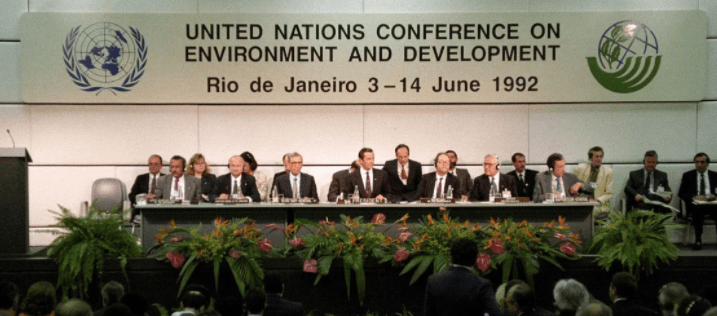





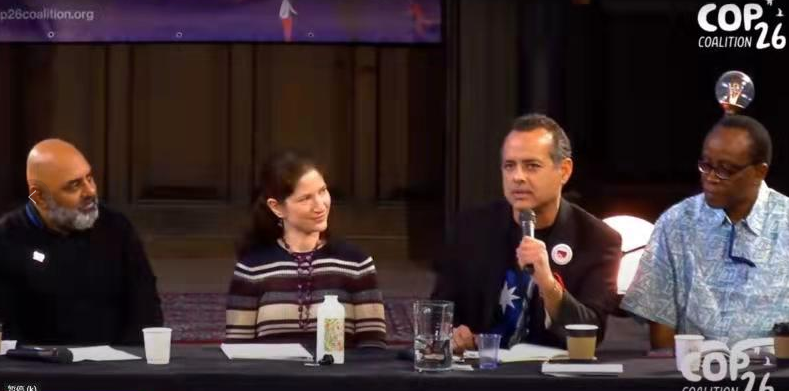 维贾伊(右二)在COP26上发言。
维贾伊(右二)在COP26上发言。